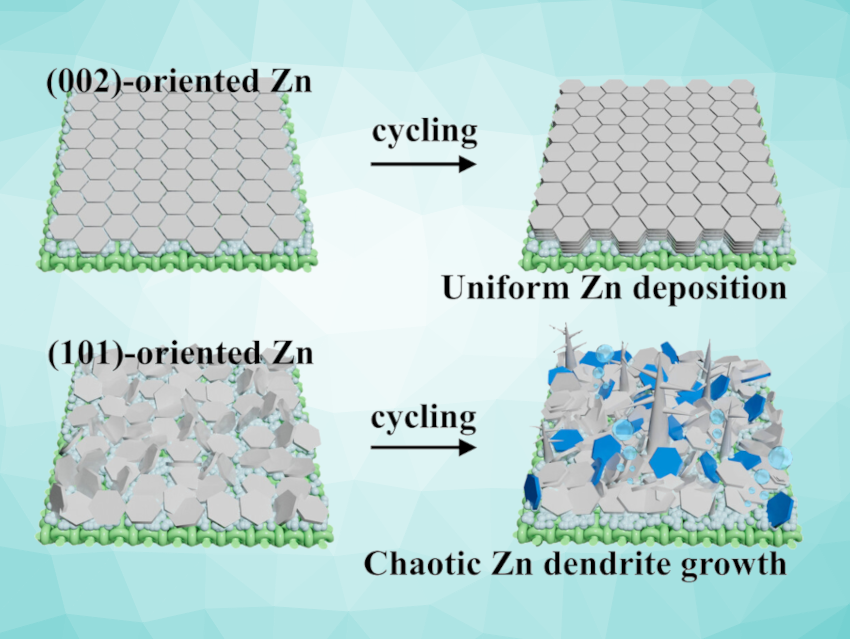Zn-ion batteries can be promising alternatives to conventional Li-ion batteries due to their environmental friendliness and safety, making them suitable for renewable energy storage. However, uncontrolled dendrite growth and side reactions can limit the use of this type of battery. New anode designs can help to overcome these challenges.
Jiaqian Qin, Chulalongkorn University, Bangkok, Thailand, and colleagues have developed a new anode material for Zn-ion batteries that suppresses Zn dendrite growth, hydrogen evolution, and corrosion of the anode, resulting in more stable batteries. The team used an electroplating method to deposit (002)-oriented Zn textures on a cotton cloth substrate, which was modified with a silver conductive layer on top. Compared with (101)-dominated Zn, the (002)-oriented Zn textures show faster deposition kinetics and lower charge transfer resistance, and they can suppress dendrite growth and inhibit side reactions.
The researchers found that controlling electroplating current and time can modify the crystal structures of the electroplated metals. The optimized conditions for this process involved a current density of 40 mA/cm2 and an electroplating time of 30 min. The good flexibility of the electroplated (002)-dominated layer on the modified cotton cloth opens up possibilities for integrating Zn-ion batteries as a power source in wearable devices.
- Texturing (002)‐Oriented Zinc Atop a Cotton Cloth for High‐Performance Zn‐Ion Batteries,
Napat Kiatwisarnkij, Zehao Song, Chanin Tangpongkitjaroen, Suttipong Wannapaiboon, Xinyu Zhang, Panyawat Wangyao, Jiaqian Qin,
Batter. Supercaps 2025.
https://doi.org/10.1002/batt.202400727



